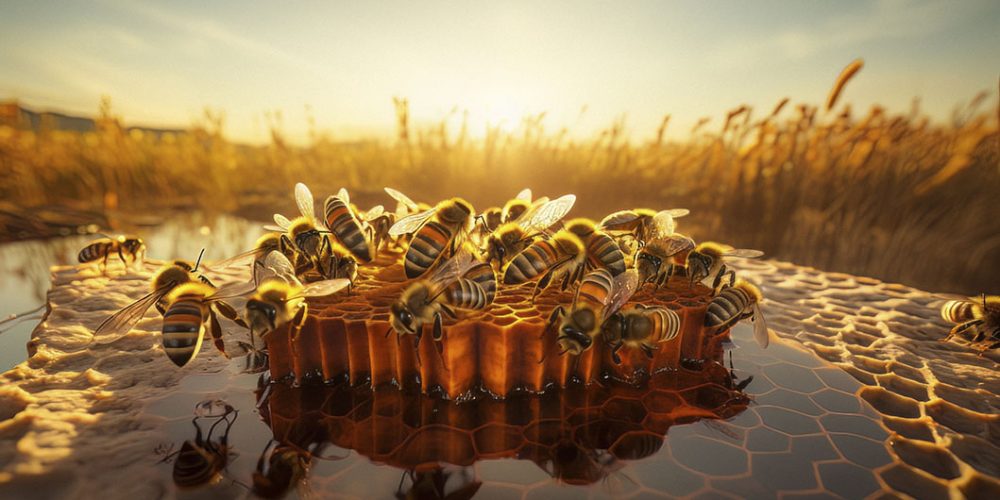May 20th marks World Bee Day, a global celebration to raise awareness about the vital role bees and other pollinators play in maintaining the health of our ecosystems and food security. These tiny creatures are the backbone of our planet’s biodiversity, and their importance cannot be overstated.
Bees are responsible for pollinating around 1/3 of the world’s crops, including fruits, vegetables, nuts, and seeds. Without bees, many of our favorite foods would disappear, and global food security would be severely impacted. Bees also pollinate wildflowers, trees, and other plants, maintaining the delicate balance of ecosystems.
Unfortunately, bee populations are facing unprecedented threats. Chemical farming activities, such as the use of pesticides and herbicides, are major contributors to bee decline. These chemicals can kill bees directly or contaminate nectar and pollen, harming entire colonies. Habitat loss, climate change, and varroa mite infestations also play a role in the alarming decline of bee populations.
If bees were to disappear, the consequences would be catastrophic. Food production would plummet, and many plant species would struggle to reproduce. This would have a ripple effect throughout entire ecosystems, leading to reduced crop yields, loss of biodiversity, economic instability, and job losses in agriculture and related industries.
Bees provide more than just pollination services. Their products, such as honey, beeswax, and propolis, have numerous benefits for human health and well-being. Honey is a natural antibacterial agent, while beeswax is used in cosmetics and candle-making. Propolis has antimicrobial properties and is used in medicine.
To protect these vital pollinators, we must adopt sustainable agricultural practices. Reducing chemical use and promoting organic farming can help mitigate the impact of agriculture on bee populations. Planting bee-friendly crops and flowers can provide essential food and habitat for bees. Supporting local beekeepers and sustainable agriculture can also contribute to the preservation of bee populations.
As we celebrate World Bee Day, we must acknowledge the threats bees face and take action to protect them. By working together, we can ensure the long-term health of our ecosystems and food security. The fate of bees is in our hands – let’s act to preserve these unsung heroes of our planet.


